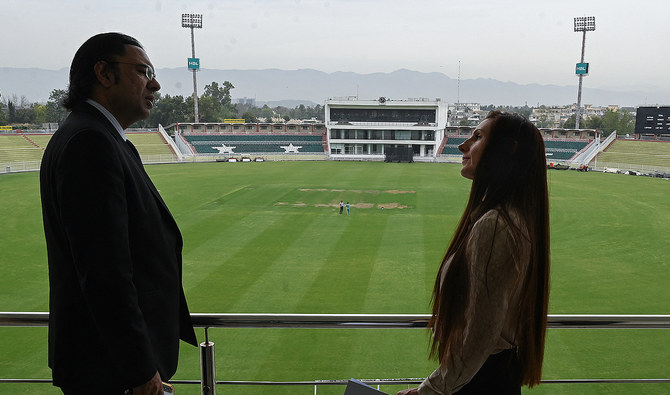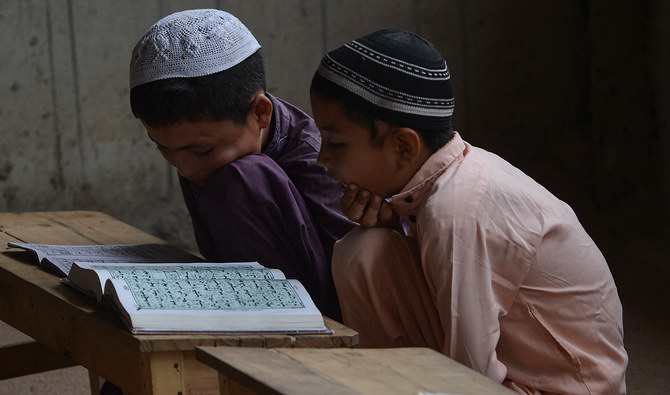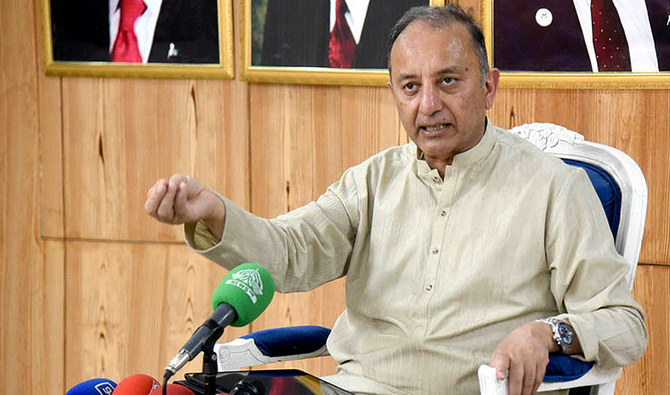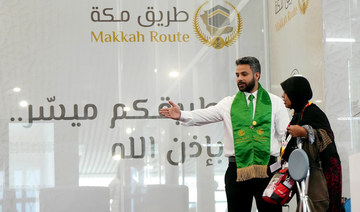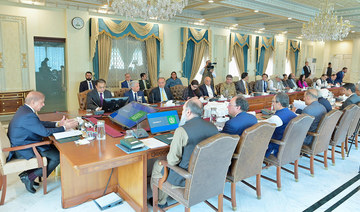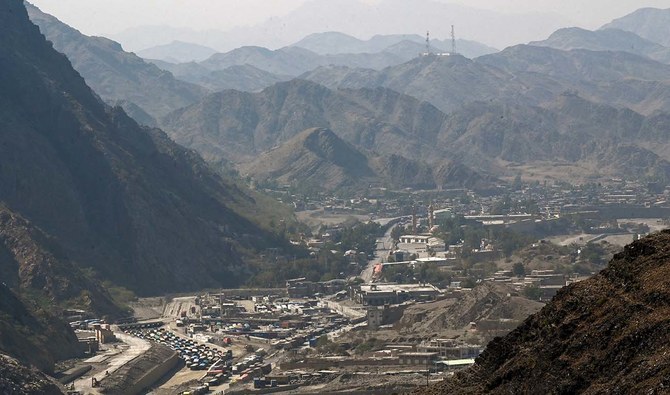LAHORE: In a televised address to the country on May 15, Prime Minister Imran Khan expressed relief that the number of coronavirus cases in Pakistan were much lower than forecasted.
“As per our predictions, by May 14 Pakistan was to have 52,695 cases [of COVID-19] and 1,324 deaths,” he told the nation. According to the government statistics, on that day the official figure was a little over 37,000 infections, while 803 people had died.
“Thankfully, we are still below projections,” Khan said.
The forecast the prime minister was referring to is determined by a team of scientists and doctors who access and analyze the country’s data.
One of those scientists is Ahsan Ahmed. He and his team, spread across Pakistan as well as abroad, use the “Susceptible-Exposed-Infectious-Recovered (SEIR)” mathematical model to predict the development of the COVID-19 outbreak.
In simpler terms, this model divides the population into four categories: those who are susceptible to the virus, these are people who could potentially catch the disease; the exposed, people who might have the virus but show no symptoms; the infectious, these are active cases; and the recovered.
The SEIR model was used successfully in the past to understand the outbreak of Ebola, SARS and Zika – and most recently in Wuhan, China, to assess how the novel coronavirus would spread.
Scientists around the world have used various epidemiological models to help policymakers plan ahead, and determine what interventions and resources will be needed in case of a surge. Pakistan, similarly, is also deploying a team of experts for the purpose.
Ahmed, who is the senior technical advisor at the ministry, told Arab News over the phone from Islamabad that his team is meticulous when extrapolating data to ensure that there are few if any, inaccuracies.
Every week, the estimate of infected is revised and re-evaluated in comparison to actual, on-ground numbers.
This data is then presented to the state’s National Command and Control Centre (NCOC), the primary body tasked with devising a strategy to counter the pandemic in the country.
When comparing official figures with forecasted ones, Ahmed explained, “the trend we are noticing is that they are pretty much aligned.”
His team includes doctors based in London and Canada. Ahmed himself is from the University of Manitoba, Canada.
Others providing technical assistance includes a private data modelling company in Karachi, named Love For Data and officials from the UNICEF.
Love for Data was unavailable for comment when contacted by Arab News.
When asked how many cases Pakistan is expected to record in the coming weeks, both Ahmed and Atta-ur-Rehman, the additional secretary at the Ministry of National Health Services Regulation, declined to comment, stating that these figures were only disclosed to the NCOC.
But separately, the Minister for Science and Technology, Fawad Chaudhry, tweeted that Pakistan was expected to receive more pressure from the virus by mid-June – a month from now.
Independent forecasts predict the same. Jan Fiete Grosse-Oetringhaus and Zafar Yasin, affiliated with the European Organisation for Nuclear Research (CERN), in Geneva, Switzerland, have done their own modeling using the SEIR model.
Yasin agrees with the assessment by Chaudhry that Pakistan would likely reach its peak of daily cases by the middle of next month.
By then, he estimates, the confirmed cases could be between 200,000 to 350,000 or even more, and deaths between 4,000 to 7,000.
But he has one concern. While the SEIR model is very accurate, in Pakistan’s case, there is a mismatch.
“In Pakistan, it seems that the confirmed cases (based on model predictions) should be 80,000 by now, but we are in the range of 43,000,” Yasin tells Arab News. “When the same model was used for different countries in Europe, it gave reliable results, but for Pakistan, it is showing a different trend.”
One reason, Yasin added, could be that Pakistan is not testing enough in comparison to its population. At this point, it should be testing between 40-50,000 per day, he said.
As of May 20, Pakistan had carried out nearly 13,000 tests per day for a population of over 207 million.
This uncertainty affects the model's output. In other words, the fewer people are tested, the less will be known about the actual number of people infected.
Earlier this month, international scientists tracking the spread of the coronavirus estimated that for every known case, there are five to ten people whose infections are not known. The study was published in Science Magazine.
In the same address on May 15, PM Khan made another revelation.
Due to lower than forecasted figures, he said, there is still space in the hospitals to treat COVID-19 patients, and the pressure on the healthcare system is not that much.
But health officials and those on the frontlines tending to coronavirus patients, disagree. Even if government figures are below those forecasted, they say, hospitals are already brimming with patients suffering from COVID-19.
Dr Nasir Azim Kakar, a pulmonologist at the Fatima Jinnah Chest Hospital in Pakistan’s poorest province, Balochistan, told Arab News that he and his colleagues receive an influx of patients daily.
“If earlier we were examining five patients a day, now we examine three times that,” he said over the phone from Quetta.
“These days, when we receive patients, we face a major shortage of ICU beds, ventilators, and a shortage of staff, especially for the ICU.”
*With additional reporting by Nazar ul Islam





